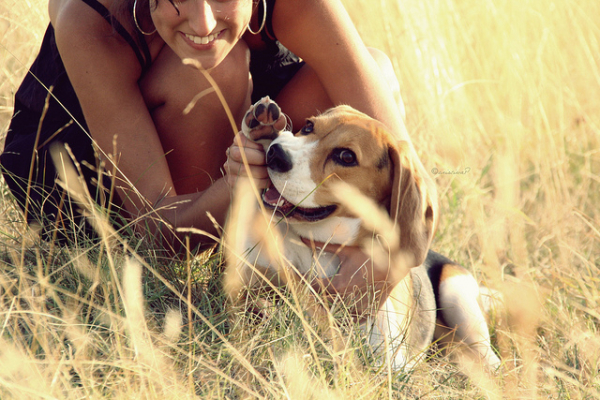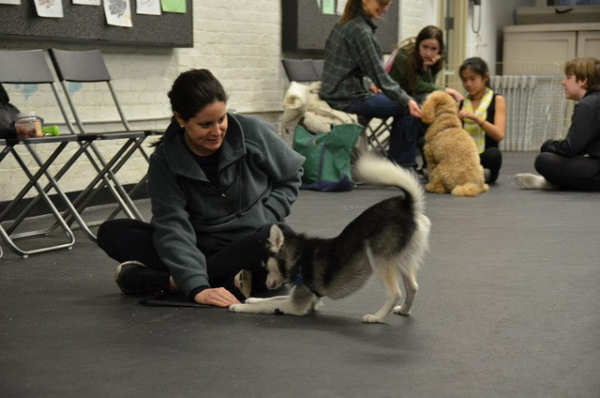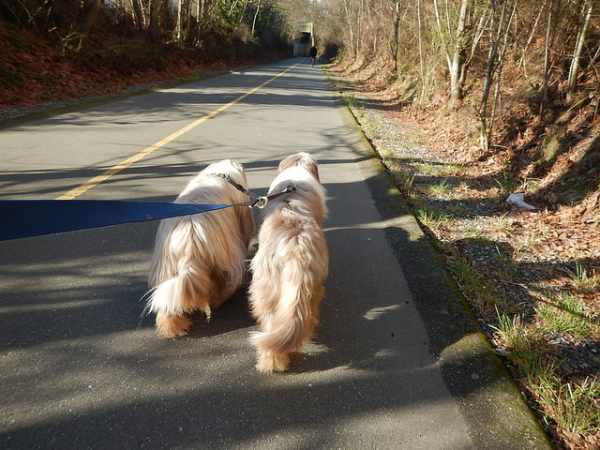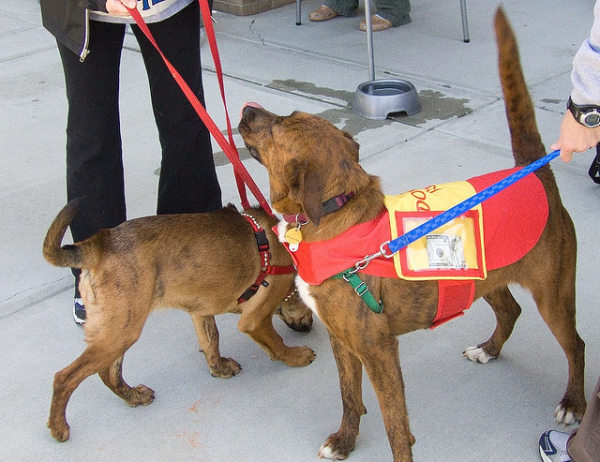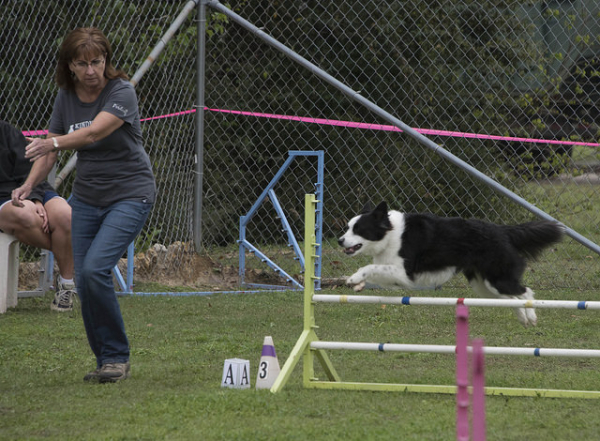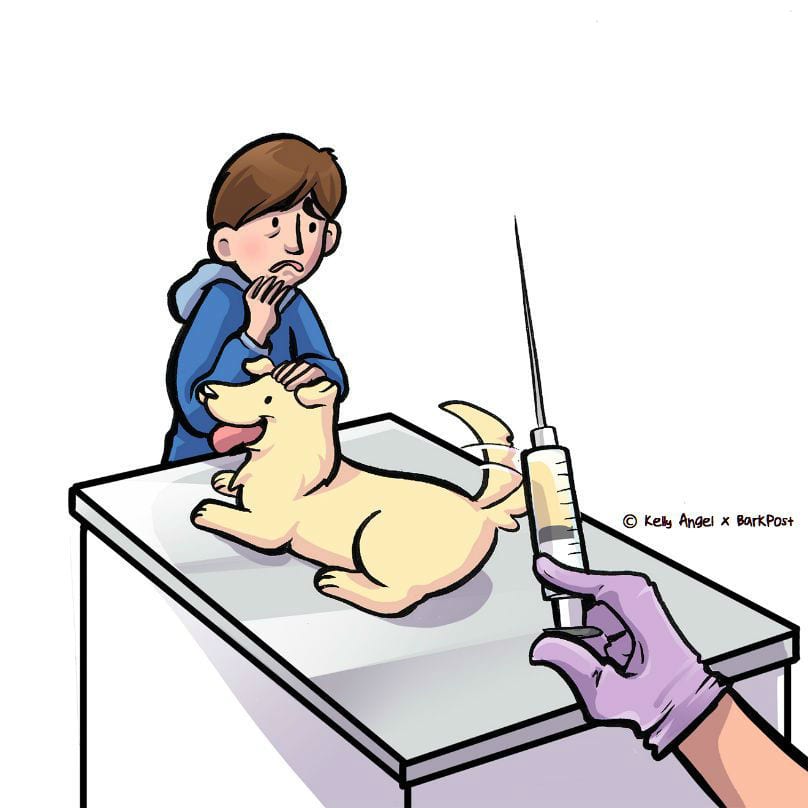Have you ever wondered what it would be like to spend your entire work day helping dogs? Dog trainers get to do just that! While it’s fun, exciting, and rewarding, it is certainly no 9-5 occupation. Trainers face plenty of challenges and go above and beyond in ways you may not be aware of. Here is your chance to get an inside glimpse at the secret lives of dog trainers.
1. They Work With People More Than They Work With Dogs
If you are looking for a career where you won’t have to deal with people, then dog training is NOT for you! Of course the primary goal is to help dogs become happier and better adjusted, but the only way to do this is to train the owner as much as the dog. A good trainer demonstrates what a dog is capable of and gives the owners the tools and confidence to carry on the training at home. Dog lovers experiencing behavioral issues with their beloved pets are often very emotional. Trainers must be prepared to act as therapists to dogs and their parents!
[bp_related_article]
2. Many Learn By Doing, While Others Seek Professional Certification
While several professional education and certification programs exist for aspiring dog trainers, many learn the old fashioned way: by seeking hands-on experience. Some have had a natural affinity and soothing affect on dogs all their lives. Others simply turn their desire into action by devouring books on training; working with their own dogs and those of family and friends; and building connections through dog walking or pet sitting.
3. They Help Each Other Out
It is not uncommon for an experienced trainer to take on an apprentice. Their goal is to help as many dogs and people as possible with responsible training techniques, so they try to share what they’ve learned with other aspiring trainers. With television training personalities becoming celebrities, local trainers must fight against the expectations these shows put in their clients’ minds. To make sure they stay on the cutting edge of their profession, trainers frequently attend conferences and additional certification opportunities.
4. They Volunteer Their Time
Dog trainers believe in giving back to the community and doing all they can for the animals that provide their livelihood. Many volunteer their time and expertise to help shelter dogs overcome behavioral issues and increase their chances of adoption. Others train service dogs and provide them to handicapped individuals or soldiers suffering from PTSD.
5. Many Are Self-Employed, So Their Job Includes Marketing, Networking, Accounting, Etc.
Aside from the general stress that comes along with working with animals and people, self-employed trainers must also deal with the pressure of running a business. They must incur the additional costs of marketing their services, as well as get out and network within their community, balance the books, and much more. Being an independent business owner typically means carrying pricey insurance and taking considerably more risk than folks employed by established companies. Trainers are willing to do all this out of sheer love and passion for their work.
6. They Think Like Dogs
It is difficult for dog lovers to separate their emotions from those of their pets. Dog trainers must try to enter the minds of their furry clients to get to the bottom of unwanted behaviors. This means disregarding their human instincts and focusing on those of the dog. Often negative canine behaviors are a direct result of something their human companion is unwittingly doing wrong. Trainers must identify these issues and decide on the best way to treat that particular dog and owner.
7. They Take Plenty Of Lumps (And Bites)
Television shows often feature miracle working trainers who whip wild, teeth-gnashing beasts into shape in 23 minutes flat, plus commercials. In reality, rehabilitating a troubled canine can take months for a trainer, and a lifetime of reinforcement from the owner. It’s an extremely physical job even when working with smaller dogs. Bumps, bruises, bite wounds, and pulled muscles are all par for the course.
8. They Train Each Dog As An Individual
No two dogs learn or respond the same, and each brings their own set of anxieties, fears, and behaviors to the table. A professional trainer must be able to evaluate each animal individually and come up with the best training plan for them. For example, a timid dog may be fearful of loud verbal commands but respond positively to hand signals. Other dogs may require a sterner approach, or even the additional help of a canine behaviorist. Check out this post next to learn the difference between trainers and behaviorists.
9. They Have Specialties Like Agility, Service Or General Obedience
Although they are likely educated in several different aspects of canine behavior, many trainers choose to specialize in a particular area. Agility trainers provide high energy dogs and their owners with an exercise outlet and a great bonding experience. Those who feel compelled to give back even more to the community may choose to train service animals. Whether for the military, law enforcement, physical handicaps, or emotional disorders, the training of service dogs is an incredibly important service.
10. Their Dogs Have Issues, Too!
The kindhearted folks who devote their lives to rehabilitating dogs and their people often end up adopting some of their most difficult cases. For some, a beloved pet in their past inspired them to go into this line of work. Others see dogs that the world has given up on and feel compelled to give them one last chance at a happy ending. Training people and dogs to successfully coexist can be a very challenging job. These devoted folks do it out of a deep love for animals and dedication to their communities. Luckily, all the tricks they pick up along the way can come in very handy with training unruly kids and lazy spouses, too!
Featured image via @olk9_central_florida

